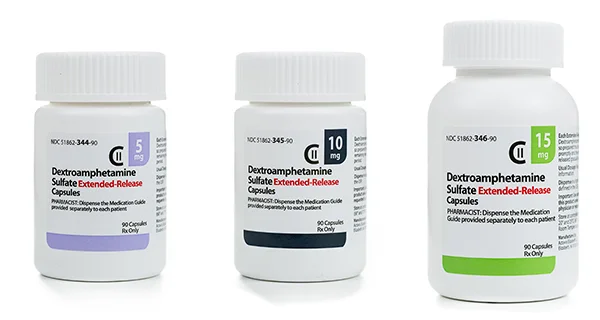Blog
ketamine treatment
ketamine treatment
Ketamine treatment refers to the use of ketamine in a clinical setting to treat various mental health conditions, primarily depression, anxiety, PTSD, and chronic pain. It has gained popularity in recent years for its ability to provide rapid relief in patients who have not responded to traditional therapies.
What Conditions Are Treated with Ketamine?
- Treatment-Resistant Depression (TRD): Ketamine is often used when patients don’t respond to standard antidepressants. ketamine treatment
- Anxiety and PTSD: Studies suggest ketamine can significantly reduce symptoms of anxiety and post-traumatic stress disorder.
- Chronic Pain: Ketamine is used to treat conditions like fibromyalgia and chronic regional pain syndrome, offering relief from severe, persistent pain.
- Bipolar Disorder: Some research supports ketamine’s use in reducing bipolar depression symptoms.
Types of Ketamine Treatments:
- IV Infusions: This is the most common and widely studied method, providing quick results in a controlled clinical setting. Sessions typically last 40 minutes to an hour.
- Esketamine Nasal Spray (Spravato): An FDA-approved option for treatment-resistant depression. It is administered under medical supervision in conjunction with traditional antidepressants.
- Oral and Sublingual Ketamine: These forms are less commonly used but can be effective for some patients in managing depression and chronic pain. buy ketamine online
Benefits of Ketamine Treatment:
- Rapid Onset: Unlike traditional antidepressants, which can take weeks to show effects, ketamine often works within hours or days.
- Neuroplasticity: Ketamine encourages the formation of new neural connections in the brain, helping patients recover from the damaging effects of chronic stress and depression.
- Effectiveness in Severe Cases: Patients who have failed to respond to multiple treatments often find relief with ketamine. ketamine treatment
Treatment Process:
- Initial Consultation: A mental health professional will assess whether ketamine treatment is appropriate.
- Dosing: Depending on the treatment type, doses are administered in a medical facility.
- Follow-Up: Multiple sessions are usually required to achieve lasting benefits. Patients might need ongoing maintenance treatments. ketamine for sale
Risks and Side Effects:
While ketamine is considered safe in a controlled setting, side effects can include:
- Dissociation or feeling detached from reality
- Elevated blood pressure
- Nausea and dizziness
- Temporary anxiety or confusion
Ketamine treatment has opened new possibilities for patients with difficult-to-treat mental health conditions. However, it must be administered by trained professionals due to the need for monitoring and managing potential side effects.
Ketamine therapy
Ketamine therapy is a medical treatment primarily used for managing treatment-resistant depression, anxiety, PTSD, and chronic pain. It involves administering controlled doses of ketamine, either through intravenous infusions, nasal sprays (like esketamine/Spravato), or oral formulations. Here’s a detailed overview of ketamine therapy.
How Ketamine Therapy Works
Ketamine works by targeting the brain’s glutamate system, which plays a role in mood regulation and neuroplasticity. It’s thought to restore synaptic connections and promote new neural pathways, leading to a rapid antidepressant effect. This mechanism is different from traditional antidepressants that typically affect serotonin or norepinephrine.
Uses of Ketamine Therapy:
- Depression: Ketamine therapy has shown rapid and significant improvement in individuals with treatment-resistant depression, often providing relief within hours or days.
- Anxiety and PTSD: Studies show that ketamine can reduce symptoms of severe anxiety and post-traumatic stress disorder, though ongoing sessions may be needed for long-term effects.
- Chronic Pain: For conditions like fibromyalgia and complex regional pain syndrome, ketamine infusions can reduce severe pain when other treatments fail.
Forms of Ketamine Therapy:
- Intravenous (IV) Ketamine Infusions: The most common form, administered under medical supervision in a clinic. It allows precise dosing and immediate results.
- Esketamine Nasal Spray (Spravato): FDA-approved for treatment-resistant depression, taken in conjunction with an oral antidepressant.
- Oral or Sublingual Ketamine: Less common but sometimes prescribed for ongoing mental health maintenance or chronic pain.
Benefits of Ketamine Therapy:
- Rapid Relief: Unlike traditional antidepressants, ketamine works quickly, often showing effects within hours or a few days.
- Effectiveness: It has been particularly useful in patients who haven’t responded to other treatments.
- Neuroplasticity: Ketamine promotes brain growth and repair, which may contribute to its fast-acting benefits. buy ketamine
Risks and Side Effects:
While generally safe under medical supervision, ketamine therapy can have side effects, including dissociation, dizziness, nausea, and increased blood pressure. Long-term effects are still under study, so it’s crucial to only undergo therapy in a controlled clinical setting.
Duration and Frequency:
Typically, a course of IV ketamine therapy involves 6–8 sessions over 2–4 weeks. Maintenance treatments may be needed to sustain the benefits.
Ketamine therapy is considered a breakthrough in mental health, but more research is needed to understand its full potential and long-term safety. Always consult a specialized healthcare provider for this treatment. Viking Pool Cues
Ketamine Powder
Ketamine powder is a form of ketamine, a dissociative anesthetic that is used both medically and recreationally. Medically, ketamine is approved for use in anesthesia, pain management, and as a rapid-acting antidepressant, especially for treatment-resistant depression. Ketamine powder is typically administered in controlled medical settings where it can be mixed with a liquid solution for injection or used in other therapeutic forms such as nasal sprays or oral treatments.
Uses of Ketamine Powder:
- Anesthetic Use: Ketamine is commonly used in surgical and emergency settings due to its ability to induce anesthesia without compromising the airway or breathing.
- Mental Health Treatment: It has shown effectiveness in treating severe depression, anxiety, PTSD, and suicidal ideation.
- Pain Management: Ketamine can be used to manage chronic pain conditions and is sometimes used when opioids are ineffective. ketamine for treatment-resistant depression
Importance of Ketamine Powder:
- Rapid Action: Ketamine works faster than traditional antidepressants, often providing relief within hours. ketamine for treatment resistant depression
- Neuroplasticity: It promotes synaptic growth, which helps heal brain circuits damaged by stress and depression.
- Therapeutic Potential: When used in small, controlled doses under medical supervision, ketamine has been a game-changer for patients with treatment-resistant mental health conditions.
However, ketamine powder also has risks when misused recreationally. Outside of controlled environments, it can lead to addiction, cognitive impairments, and dangerous physical effects, such as dissociation and hallucinations. Therefore, it is important that ketamine, in any form, is handled with caution under medical guidance. ketamine infusion therapy treatment
ketamine tablet uses

Ketamine tablets, like other forms of ketamine, are primarily used for medical and therapeutic purposes. Their uses include:
- Anesthetic Use: Ketamine tablets may be used as an anesthetic, particularly in environments where traditional anesthetics aren’t suitable. They are often used in combination with other medications to induce anesthesia.
- Mental Health Treatment: Tablets are sometimes used off-label for the treatment of severe depression, anxiety, PTSD, and bipolar disorder, particularly when other antidepressants have failed. Ketamine has rapid antidepressant effects compared to traditional antidepressants.
- Chronic Pain Management: For individuals suffering from chronic pain conditions like fibromyalgia or complex regional pain syndrome (CRPS), ketamine tablets can be used to manage and alleviate severe pain. ketamine for depression treatment
- Treatment of Substance Abuse Disorders: Ketamine therapy is sometimes used to treat alcohol and drug addiction by helping to reset neural pathways involved in the addictive cycle.
It is crucial to note that ketamine in any form, including tablets, should only be used under strict medical supervision due to its potential for misuse and addiction, as well as its dissociative and hallucinogenic properties when taken recreationally. intravenous ketamine treatment
For specific uses and dosages, ketamine tablets are often part of a broader treatment plan, which could include therapeutic guidance in a clinical setting. where to buy ketamine

